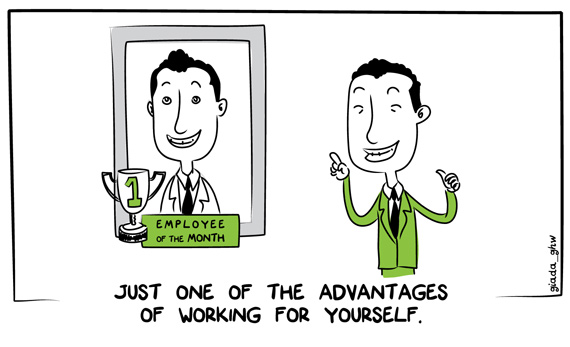Implementation: The Chief Variable of Success

In my work with pre-start businesses, which normally focuses upon the production of a sound business plan, I am often asked what guarantees I can offer with regards the success of their new business proposition. Even with a well crafted business plan and the necessary finance in place, many entrepreneurs are still nervous that things will not work out as they have forseen. Frankly, they are right to be nervous. Just because a plan is right on paper does not mean it will automatically succeed. For these plans to work in practice, the nascent business requires the capability to implement in a co-ordinated way everything that is required to produce the desired results.
Most consultants pay scant attention to the implementation capability of their clients organisation - other than to complain about their lack of it. Even though it is more often than not the lack of implementation capability that derails the entrepreneurs dreams, I've yet to speak to anyone else who works with small businesses that pays much attention to strengthening this capacity in order to ensure their clients success in the real world. Having the "right" plan on paper is important but it is not enough. Ultimately, it is only the results that you can translate into the real world that matter. A plan that was perfect on paper will be cold comfort when you are dealing with the negative consequences of a failed business venture due to poor implementation.
At Continuous Business Planning, we work with our clients using a three stage experiential learning cycle that is designed to simultaneously deliver rapid, measurable results in the chosen strategically important sphere and strengthen our clients implementation capability. We are big believers in rapid cycle projects, in which we plan, implement and review the planned results within no more than 100 days. For example, if the long term objective is to accelerate company growth, our work will focus for the project duration on actually achieving some of the growth targets, not simply doing market research, product testing or other preparation.
We subscribe to this "rapid cycle" approach to change for three reasons. These are:
Fast Positive Payoffs
We believe that in order to succeed, any implementation efforts need to be perceived as self funding mechanisms rather than sinkholes for endless investment of time and money in improvements that are always promised for the future. Success begets success, with confidence and morale improving across the whole team that was involved in the project. This can lead to a virtuous circle of increasingly ambitious projects as implementation capability and confidence increase within the organisation.
Process Innovations
The rapid cycle approach turns the organisation into a living laboratory which is continuously testing process innovations, not as abstract ideas but as tools that are immediately applied in achieving urgently needed results. Some of the innovations that I have seen are the adoptation of project mamangement disciplines, improved results measurement and accountability and improved cross functional collaboration. These organisational developments stay with the business long after the rapid cycle project in question is over.
Gains in Learning & Development
The rapid cycle project approach to change requires people to take on new responsibilities, experiment with new ways of working and necessitates the adoptation of new skills. I have seen time and time again how the experience of being held fully accountable for results spurs on the learning and personal development of those in positions of responsibility within the project.
These benefits from the rapid cycle project approach to change set the stage for an expansion and acceleration of the process. Each project serves as a building block for larger scale change and the accomplishment of even more challenging goals. In other words, the implementation capability of the organisation is permanently enhanced and the business is making significant strides along the path that leads from where it was to where it ultimately wishes to go.
Rapid cycle projects need to be carefully selected in order to achieve these twin objectives of both delivering results and capability development. There are seven criteria we use in selecting designing projects which I will share with you now. These are:
-
Project Focuses On An Important Goal
-
It Produces A Measurable, Challenging Result
-
It Works In The Short Term
-
It Pinpoints Clear Accountability
-
It Drives Experimentation
-
Project Is Planned and Disciplined
-
Makes Learning A Deliberate Outcome
Hopefully, those of you who are familiar with Continuous Business Planning as an organisation will not make the mistake that we are proposing rapid cycle project work as an alternative to longer term business planning and strategic management. Rather it is a necessary, complementary element in business development and advancement efforts.
If you are looking to launch your small business upon an unsuspecting world and want to make sure you make the maximum splash possible, then feel free to contact us to discuss how we can help you achieve your desired results as well as develop your implementation capability so that your ability to deliver catches up with the scope and scale of your entrepreneurial dreams. We do not believe in impossible goals here at Continuous Business Planning, only unrealistic deadlines. As you take your business from where it is now to where you want it to go one successful rapid cycle project at a time, you'll begin to feel that way too.
